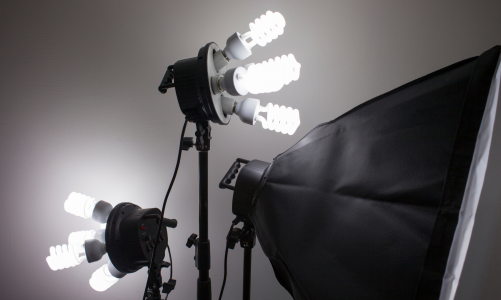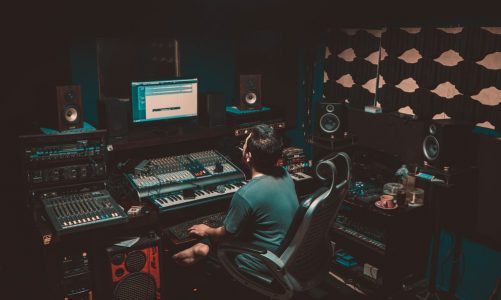It’s time to talk about the unsung hero of the entertainment industry: music. We’ve all heard those iconic movie themes and TV show soundtracks that transport us into a different world entirely. But have we ever stopped thinking about music’s importance when bringing those fictional worlds to life? In this blog post, we’re exploring the role of music in TV and film – from setting the scene and creating emotion to enhancing plot points and even influencing our own emotions as viewers. So let’s prepare for a behind-the-scenes look at how music makes magic on screen!
The Power of Music in Film and TV
Music has always been a powerful tool in storytelling. From the first movies to contemporary series and films, music often provides an emotional backbone or drives the plot forward. Whether it’s underscoring a scene or providing an entire soundtrack, music significantly impacts viewers.
In television and film, music can help set the tone, convey character arcs and emotions, and add crucial layers of context to a story. Recently, there’s been an increased focus on incorporating original music into TV shows and films. This is mainly due to the popularity of SoundCloud and other streaming platforms, which allow for greater creativity and experimentation with soundtracks.
While some viewers may find original music jarring or distracting, it can lend a unique feel to certain scenes or episodes. For example, “Stranger Things” uses eclectic synth-pop songs such as “The Monster” by The Radio Dept., which perfectly captures the juvenile angst of young characters like Eleven (Millie Bobby Brown). Conversely, “Game of Thrones” features stirring melodies written by Ramin Djawadi that have become synonymous with the epic fantasy series.
Original music also plays a vital role in driving home key points in a story. For instance, during the climax of “The Dark Knight Rises,” James Bond (Daniel Craig) marches through Gotham’s streets, accompanied by thundering orchestral themes inspired by Italian opera. These carefully crafted cues not only intensify the suspense and drama but also represent Bond’s power and authority.
In short, music has a powerful impact on viewers in terms of its emotional content and ability to drive the plot forward. It’s essential to consider music when creating narratives. Using original or carefully selected tracks can provide an elevated experience for viewers.
How Music Shapes Emotional Response
Music has a long and varied history of being used in television and film. Music shapes how viewers perceive emotions, from classical music in dramas to modern songs playing during montages.
Studies have shown that certain types of music can evoke different emotions in viewers. Classical music is often used to evoke feelings of sadness and introspection. At the same time, upbeat pop songs are more likely to produce feelings of joy and happiness.
How music is used in films and TV can also have a powerful impact on viewers’ feelings. In particular, montages commonly feature popular songs that work well as mood setters. By juxtaposing emotionally charged music with scenes from the movie or show, filmmakers can create an emotional response in their audience.
Overall, it’s clear that music plays an essential role in shaping how we experience emotions both onscreen and off. Whether providing a contemplative backdrop for a tense scene or setting the tone for a joyful montage, music has tremendous power to influence our perceptions.
The Use of Music to Advance Plot
When it comes to storytelling on screen, music has a profound impact. In some cases, music can help advance the plot. In contrast, in others, it can provide a more immersive experience for the viewer. Regardless of its purpose, there is no doubt that music has played an essential role in both television and film over the years.
One prevalent use of music in storytelling is in crime dramas. Adding tense and suspenseful music to scenes where crimes are being committed can drive home the feeling of fear or excitement for the viewer. This type of soundtrack can also create a connection between the audience and the characters onscreen, deepening their identification with them.
In other genres, such as romance movies or children’s movies, catchy tunes can make viewers feel entertained and happy without resorting to heavy dialogue or exposition. This helps keep viewers engaged from beginning to end, which is key for keeping them coming back for more episodes or watching the movie all in one go.
Overall, it’s clear that music significantly impacts our perception of stories on screen. Whether contributing to tension and suspense or providing an enjoyable listening experience for those watching at home, musical cues greatly influence our overall experience with entertainment media.
The Future of Music in Film and TV
One common trend noticeable over the past few years is the increasing use of original music in films and TV shows. This change isn’t limited to big-budget productions; even smaller projects incorporate original music into their storytelling. This trend can be attributed to several reasons, but most notably, it’s become an increasingly affordable and accessible option for filmmakers.
Another trend in recent years is using soundtracks as central elements of stories. This means that more and more theatrical releases are accompanied by an accompanying album or EP rather than relying solely on traditional end credits songs. This change has led to increased prominence for new artists, many of whom are making their debut with soundtrack albums.
Overall, the future of music in film and TV looks promising. Several exciting new trends are emerging, and existing ones continue to evolve in ways that will have a lasting impact on how music is used in storytelling.
Music Elevates TV and Film Storytelling
As the entertainment industry grows, so does music’s role in television and film. Music has always been a vital part of storytelling, from scoring dramatic scenes to adding an extra layer of emotion. Whether providing the perfect backdrop for a tense fight scene or stirring up nostalgia in tragic moments, music is essential to making movies and TV shows truly compelling. So next time we see a scene that’s particularly well-suited to a particular piece of music, take advantage of its ability to bring out the best in storytellers everywhere.




